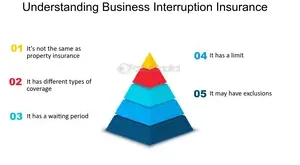Health insurance is a cornerstone of personal financial security, providing essential coverage for medical expenses and ensuring access to necessary healthcare services. With numerous plans and options available, selecting the right health insurance can be a complex task. This guide will help you understand the key aspects of health insurance and provide tips for choosing the best plan for your needs.
Understanding Health Insurance Basics
What is Health Insurance?
Health insurance is a contract between you and an insurance company that covers a portion of your medical expenses in exchange for a monthly premium. It helps manage the costs of healthcare services, including doctor visits, hospital stays, prescription medications, preventive care, and more.
Key Health Insurance Terms
- Premium: The amount you pay monthly for your health insurance coverage.
- Deductible: The amount you must pay out-of-pocket for medical services before your insurance begins to cover costs.
- Co-pay: A fixed amount you pay for a specific service or medication, typically due at the time of service.
- Co-insurance: The percentage of costs you share with your insurance company after meeting your deductible.
- Out-of-Pocket Maximum: The maximum amount you will pay out-of-pocket in a policy period, after which the insurance company covers 100% of costs.
Types of Health Insurance Plans
Health Maintenance Organization (HMO)
HMOs require you to choose a primary care physician (PCP) who coordinates your care and provides referrals to specialists. These plans usually offer lower premiums and out-of-pocket costs but limit you to a network of providers.
Preferred Provider Organization (PPO)
PPOs offer more flexibility in choosing healthcare providers and do not require referrals for specialists. They provide a larger network of providers but come with higher premiums and out-of-pocket costs.
Exclusive Provider Organization (EPO)
EPOs combine elements of HMOs and PPOs. You must use network providers except in emergencies, but you do not need referrals for specialists. These plans typically have lower premiums than PPOs.
Point of Service (POS)
POS plans require you to choose a PCP and get referrals for specialists like HMOs but allow you to see out-of-network providers at a higher cost, similar to PPOs.
High-Deductible Health Plan (HDHP)
HDHPs have higher deductibles and lower premiums, often paired with Health Savings Accounts (HSAs) to cover out-of-pocket expenses. These plans are suitable for those who want lower premiums and can manage higher initial healthcare costs.
Choosing the Right Health Insurance Plan
Assess Your Healthcare Needs
Evaluate your healthcare needs based on factors such as:
- Frequency of Doctor Visits: If you visit doctors regularly, a plan with lower co-pays and a broader network might be beneficial.
- Prescription Medications: Ensure the plan covers your medications and check the cost-sharing structure.
- Specialist Care: If you need frequent specialist visits, consider plans that offer easier access to specialists without requiring referrals.
Compare Costs
Consider the total costs of health insurance, including:
- Premiums: Monthly payment for the insurance coverage.
- Deductibles: Out-of-pocket costs before insurance kicks in.
- Co-pays and Co-insurance: Costs you pay when receiving services.
- Out-of-Pocket Maximums: The cap on what you will spend in a policy period.
Evaluate Network of Providers
Ensure the plan includes your preferred doctors, hospitals, and specialists. Check the network’s size and the convenience of accessing care within it. Out-of-network care can be significantly more expensive or not covered at all.
Check Coverage Details
Review the summary of benefits to understand what the plan covers, including:
- Preventive Services: Such as vaccinations, screenings, and annual check-ups.
- Emergency Services: Coverage for emergency room visits and urgent care.
- Hospital and Surgical Care: Including inpatient and outpatient services.
- Maternity and Newborn Care: Coverage for pregnancy, childbirth, and postnatal care.
- Mental Health Services: Access to mental health and substance abuse treatment.
Utilize Online Tools and Resources
Use online comparison tools to evaluate different health insurance plans. Websites like Healthcare.gov, state insurance marketplaces, and private insurance comparison sites provide valuable information and help you compare options side by side.
Understanding Health Savings Accounts (HSAs)
What is an HSA?
An HSA is a tax-advantaged savings account available to those enrolled in a High-Deductible Health Plan (HDHP). You can use HSA funds to pay for qualified medical expenses, including deductibles, co-pays, and prescription costs.
Benefits of an HSA
- Tax Advantages: Contributions are tax-deductible, earnings grow tax-free, and withdrawals for qualified medical expenses are tax-free.
- Roll Over Funds: Unused funds roll over year to year, allowing you to save for future medical expenses.
- Investment Opportunities: HSA funds can be invested, potentially increasing your savings over time.
Using an HSA
To maximize the benefits of an HSA, contribute the maximum allowed amount each year, use the funds for qualified medical expenses, and consider investing a portion of your HSA to grow your savings.
Conclusion
Choosing the right health insurance plan is a critical decision that impacts your financial and physical well-being. By understanding the different types of plans, assessing your healthcare needs, comparing costs, evaluating provider networks, and utilizing available resources, you can make an informed decision that provides the coverage and peace of mind you need. Health insurance is not a one-size-fits-all solution, so take the time to explore your options and select the plan that best fits your individual or family needs.
 kisskh kisskh | Asian Dramas & Movies
kisskh kisskh | Asian Dramas & Movies









